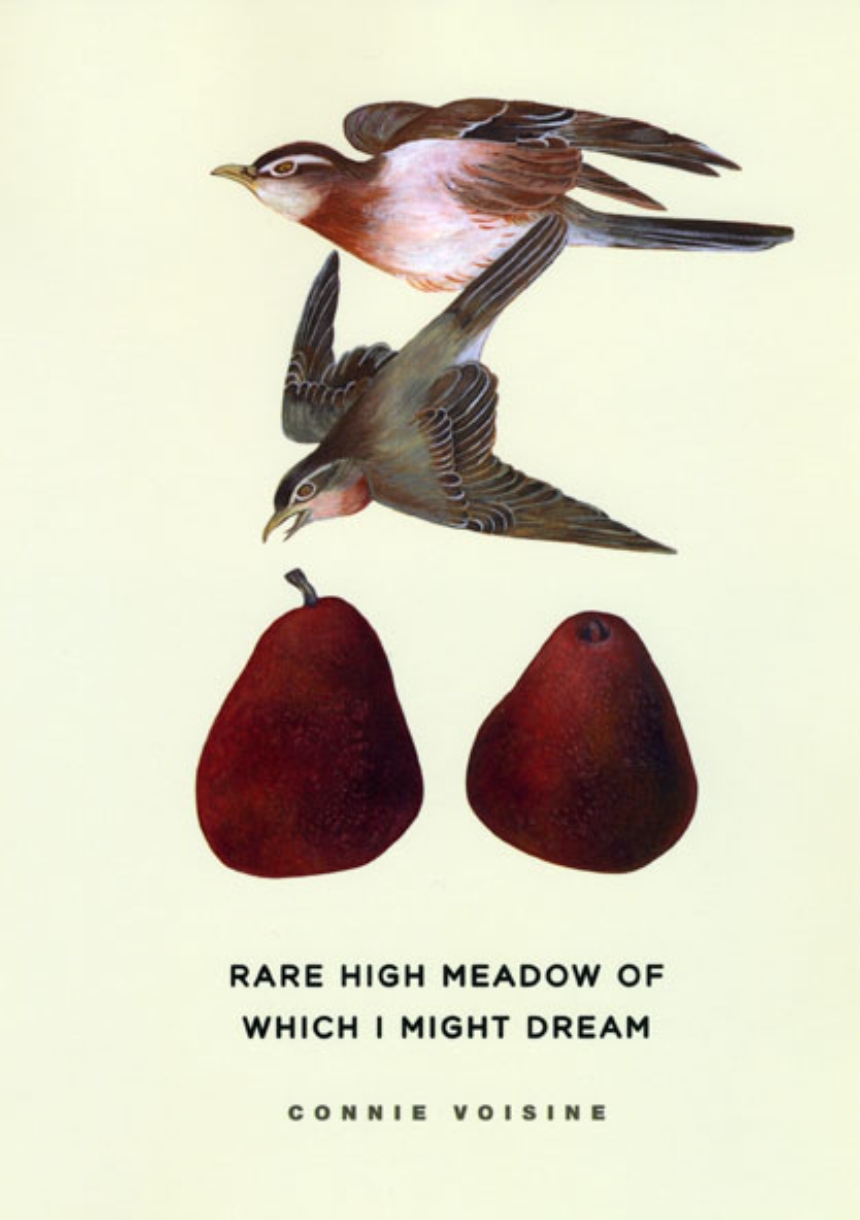Rare High Meadow of Which I Might Dream
The Bird is Her Reason
There are some bodies that emerge
into desire as a god
rises from the sea, emotion and
memory hang like dripping clothes—this
want is like
entering that heated red
on the mouth of a Delacroix lion,
stalwart, always that red
which makes
my teeth ache and my skin feel
a hand that has never touched me,
the tree groaning outside becomes
a man who knocks on my bedroom window,
edge of red on gold fur,
the horse, the wild
flip of its head, the rake of claws
across its back, the unfocussed,
swallowed eye.
Rare High Meadow of Which I Might Dream is a book haunted by the afterlife of medieval theology and literature yet grounded in distinctly modern quandaries of desire. Connie Voisine’s female speakers reverberate with notes of Marie de France’s tragic heroines, but whereas Marie’s poems are places where women’s longings quickly bloom and die in captivity—in towers and dungeons—Voisine uses narrative to suspend the movement of storytelling. For Voisine, poems are occasions for philosophical wanderings, extended lyrics that revolve around the binding and unbinding of desire, with lonely speakers struggling with the impetus of wanting as well as the necessity of a love affair’s end. With fluency, intelligence, and deeply felt emotional acuity, Rare High Meadow of Which I Might Dream navigates the heady intersection of obsessive love and searing loss.
Praise for Cathedral of the North
“Voisine’s poetry is wholly unsentimental, tactile, and filled with unexpected beauty. She is political in the best sense. . . . A dazzling, brave, and surprising first book.”—Denise Duhamel, Ploughshares
There are some bodies that emerge
into desire as a god
rises from the sea, emotion and
memory hang like dripping clothes—this
want is like
entering that heated red
on the mouth of a Delacroix lion,
stalwart, always that red
which makes
my teeth ache and my skin feel
a hand that has never touched me,
the tree groaning outside becomes
a man who knocks on my bedroom window,
edge of red on gold fur,
the horse, the wild
flip of its head, the rake of claws
across its back, the unfocussed,
swallowed eye.
Rare High Meadow of Which I Might Dream is a book haunted by the afterlife of medieval theology and literature yet grounded in distinctly modern quandaries of desire. Connie Voisine’s female speakers reverberate with notes of Marie de France’s tragic heroines, but whereas Marie’s poems are places where women’s longings quickly bloom and die in captivity—in towers and dungeons—Voisine uses narrative to suspend the movement of storytelling. For Voisine, poems are occasions for philosophical wanderings, extended lyrics that revolve around the binding and unbinding of desire, with lonely speakers struggling with the impetus of wanting as well as the necessity of a love affair’s end. With fluency, intelligence, and deeply felt emotional acuity, Rare High Meadow of Which I Might Dream navigates the heady intersection of obsessive love and searing loss.
Praise for Cathedral of the North
“Voisine’s poetry is wholly unsentimental, tactile, and filled with unexpected beauty. She is political in the best sense. . . . A dazzling, brave, and surprising first book.”—Denise Duhamel, Ploughshares
